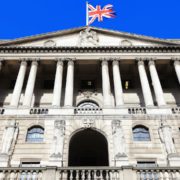Susannah Streeter comments:
‘’While the nation appears to have become obsessed by politics during the General Election campaign, the impact they have on financial markets is likely to stay more minimal – especially Britain’s blue-chip index, given its international focus. The Labour party has been ahead in the polls for many months, and has widened its lead and there could be a tailwind for certain sectors and stocks if the expected result turns up even though a win for Keir Starmer has largely been priced in.
In the run up to the election, 11% of people in a poll for HL* said they’d be more likely to vote for a party that pledged to cut tax on investments, so there may be some disappointment that neither the Labour party nor the Conservatives have pledged to cut stamp duty on share purchases, or increase the allowance for capital gains or dividend tax. Questions remain about whether Labour could increase capital gains tax in the future but it’s still far from clear if this will happen and what form it would take. However, valuations which have been languishing lower, partly due to the Brexit effect, could be positively impacted if Labour wins, given recent pledges for closer trade ties between the UK and the EU and less of a focus on regulatory divergence. Shadow Chancellor, Rachel Reeves, has also suggested that borrowing rules should distinguish between day-to-day spending and investment to propel long term growth, potentially loosening the purse strings to further support and partnerships with the private sector, above and beyond the current manifesto commitments. So far, pledges and promises made do not seem to have perturbed the debt markets, with the yield on 10-year and 30-year UK gilts falling back over the past week, with bond investors appearing to be more sensitive to interest rate speculation than the investment plans of an incoming government. ‘’
* Figures from an Opinium survey of 2,000 people, April 2024
Stocks to watch as polls predict a Labour victory
Housebuilders – Taylor Wimpey and Vistry
Labour’s pledge to kickstart the building of 1.5 million new homes by shaking up the planning system and fast-tracking urban brownfield sites for development should help companies like Taylor Wimpey, which have been hampered by slow approvals of projects. The era of higher interest rates put housebuilders in a tough position, but headwinds are easing with interest rates eyed on the horizon. The promise to extend the mortgage guarantee scheme should also help with demand.
With an emphasis expected to be placed on constructing more affordable housing, Vistry is in a good position to benefit from a Labour administration. It’s transitioned into a partnership giant, specialising in providing affordable housing by joining forces with housing associations. Although these projects tend to be lower margin, if they can be approved in greater volumes it bodes well for its business model. Partnership revenues are typically more defensive than those from ordinary housebuilding operations. The need for more affordable private and social housing shows little sign of going away even if the economy doesn’t improve significantly.
Construction – Balfour Beatty
Pledges to improve national infrastructure – like roads, schools and better hospitals look set to benefit construction contractors, such as Balfour Beatty. The public sector makes up over 95% of future orders in its UK business and, with spending on improving public services likely to be one of the top priorities of an incoming Labour administration, a government-led infrastructure boost could be on the way. However, higher borrowing costs have been causing delays in some projects going to contract, mainly across its US business, so this could continue to act as a headwind going forward if high interest rates linger for longer.
Banks – NatWest and Lloyds
A decisive Labour victory may help restore more confidence in the UK economy, as a party with a solid majority following on from the instability provoked by successive short-lived Conservative administrations. With pledges of funding for infrastructure, there are expectations that, if delivered, these could lead to a modest boost to GDP. This may help UK-focused banks like NatWest and Lloyds.
NatWest has been showing signs of promise with loan default levels remaining low and with the return of real wage growth, plus an improving housing market, borrowers look set to remain resilient. If the economy does continue to recover as expected, this trend should help put NatWest in a more resilient position, especially with easing conditions in the mortgage market appearing. Interest rate cuts will reduce the amount banks can make on loans, but more reductions have been priced in by management than the markets now expect, so revenue guidance also looks conservative. NatWest also benefits from a structural hedge policy, to reduce interest rate risk, which is set to deliver benefits in the coming years.
Lloyds is another piece of the unloved banking sector, but with easing headwinds on the horizon there’s more arguably potential for what’s seen as a bellwether for the UK economy under a Labour administration with mandate for change Consumers have already shown more resilience than expected and default rates are expected to remain low, while a new administration may provide customers with a boost of confidence to take out new loans.
Bricks and mortar store chains – Associated British Foods and J Sainsbury.
Labour has pledged to overhaul the business rates system to support high street operators and level the field between bricks and mortar chains and online giants like Amazon. Depending on how the scheme is drawn up, it could benefit chains with large footprints in town and city centres such as Primark owner Associated British Foods, which has steered clear of online-only sales. Sainsbury’s, which has witnessed a reversal of digital sales trends of the pandemic, may also benefit from a business rates shakeup if it penalised online sellers over traditional retail operations. If a Labour win is accompanied by a confidence lift, caused by optimism brought by the winds of change, it could also help consumer sentiment and provide a tailwind to sails.
Health – Primary Health Properties
Labour plans to create another 2 million appointments, partly by paying staff to work more evenings and weekends and wants to offer more face-to-face GP time. It also wants to recruit another 8,500 staff, specifically to work in mental health. These pledges look set to provide a stable growth environment for Primary Health Properties, which provides purpose-built doctor’s surgeries. Already the company has a long track record of delivering results for shareholders and is now in its 28th consecutive year of dividend increases. As a REIT (real estate investment trust), PHP must pay out the vast majority of profits as a dividend. PHP has successfully navigated the era of higher interest rates even though it’s had an impact on the value of the portfolio. The company has focused on squeezing more from existing locations, and with more demand expected at bricks and mortar properties, amid a lack of new supply this has given PHP more bargaining power in terms of rent increases. With investment in primary care facilities also likely to increase, PHP is well placed to benefit from further opportunities.
Pub Companies – J D Wetherspoon, Mitchells & Butlers
Recently, high energy costs have been a thorn in the side for the hospitality industry. The proposed establishment of Great British Energy could help keep costs down. Similarly, Labour has promised business rates reforms but has been scant on detail so far. J D Wetherspoon’s Tim Martin for one has long been a vocal campaigner for tax parity between supermarkets and pubs. Either way the company is better placed than most in the sector to deal with changing market conditions and should continue to build market share. Mitchells & Butlers, whose brands include the likes of Harvester and All Bar One is another name that’s impressed of late with market-beating sales growth.’’




























Comments